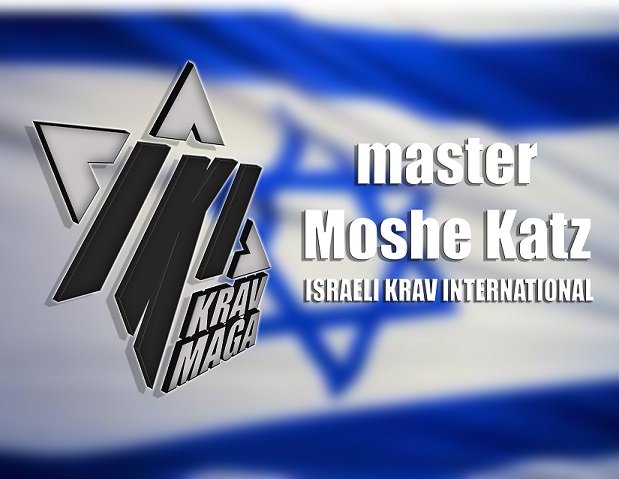- Home
- Krav Maga Blog
- Krav Instructors
- Train in Israel
- Tour Train Israel
- Krav Shop
- DVD
- Kickboxing
- IKI Near Me
- Seminars
- IKI Membership
- On-Line Training
- Krav Maga Training
- Testimonials
- History Krav Maga
- Instructors Page
- Past Blogs
- Spanish
- Italian
- Certification
- Contact
- Holland Seminar
- Vienna Seminar
- Poland Seminar
- Italy Seminar
- Belt Requirements
Simple Direct Easy
By Moshe Katz
CEO
Israeli Krav International
December 31, 2017, Israel
We are known as the People of the Book, and we study and interpret the Bible. We argue, discuss and debate, however, we have a golden rule: No passage can be interpreted differently than its simple and direct meaning.
What does this mean? We delve into the deepest meanings of each verse. Rabbis, scholars, mystics find divine and esoteric messages hidden in the Biblical verses. We say there are "Seventy faces to the Torah/Bible" meaning there are many ways to interpret a verse, each according to his spiritual level.
However,
When it comes to rendering the actual meaning of the text, we must never deviate from what is actually written, this is called "No verse can ever deviate from its simple meaning" (Talmud, tractates Shabbath, Yevamoth)
אין מקרא יוצא מידי פשוטו (שבת סג א; יבמות כד א)
For example, we read "I give you one portion more than your brothers, which I took from the hand of the Amorite with my sword and my bow." (Genesis, chapter 48, verse 22)
Jacob is telling his sons he took this land using his sword and his bow, i.e., he fought for it using his weapons. However, one interpretation is that the sword and bow actually mean, "My wisdom and my prayers", the sword is sharp, symbolizes the "sharpness of my wit", and the bow in Hebrew has the same root letters as "request" or pray.
Thus, this is an interpretation meaning with prayer and wisdom one can often achieve his aims. But the rabbis have already stated that no verse deviates or exits from its simple meaning. Thus, although we have these lovely interpretations no one can deny that Jacob indeed was a fighter and used his sword and bow (and arrow). That is the simple meaning of the text. Again, we see that the patriarchs knew how to fight and were trained warriors.
Another example is when Moshe/Moses killed an Egyptian overseer.
"Now it came about in those days, when Moses
had grown up, that he went out to his brethren and looked on their hard
labors; and he saw an Egyptian beating a Hebrew, one of his brethren. Looking this way and that and seeing no one, he killed the Egyptian and hid him in the sand." (Exodus Chapter 2, verse 11-12)
Some Biblical commentators say Moses killed the Egyptian by uttering the holy name of God. Saying the name of God, it its' original form (lost to us today and not uttered since the destruction of the Temple by the Romans in the year 70 C.E) has the power to extinguish a life. And yet, with all due respect to this mystical commentary, no verse deviates from its simple meaning, in plain English, Moses killed the bastard.
But there is another lesson for us here.
There are many martial arts, one might call them the various interpretations of self-defense. All can work for some people some of the time. We can all point to examples where Tai Chi or boxing was used effectively in self-defense. There are cases where a jumping backspin kick was used for self defense. One might call these the more far out flowery interpretations of self-defense. We however adhere to the principle that no technique exits, or deviates from its simple meaning.
One of our members was recently watching videos from a rather complex style of martial arts/self-defense and wondering about its effectiveness. While there is some value to this system our member commented that he feels much more comfortable with our direct and simple system and that now that he has studied our system he can spot the fancy embellishments of the other styles.
I have heard Biblical interpretations that really stretch the limit of my imagination and make me scratch my head. And I have seen martial arts interpretations that give me the same feeling, and I feel they have gone too far from the original meaning and that they should adhere to what the rabbis wrote nearly 2,000 years ago; Do not deviate, do not leave the simple meaning, stick to what the text says.
With Krav Maga, with self defense, there are many things that might work, for some people, some of the time, but we stick to the simple meaning, the simple and direct approach that as our member wrote, Makes sense. Now that he has studied our system he can spot the "fancy stuff" in the other styles.
(Thank you, Barry Hodges, for this insight).
Like the blogs? Own the books, all blogs now available in "Footsteps from Judea", the collected blogs by Moshe Katz.
Visit our other site
Israeli Krav International.com
